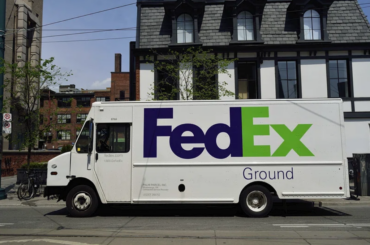Ever wonder why some international orders arrive smoothly while others get stuck in customs for ages? What’s the magic behind a seamless overseas shipping experience?
The secret often lies in understanding “international shipment release.”
This term holds vital importance in the logistics world. A smooth release ensures that your goods clears customs swiftly and heads directly to your doorstep. Without hitches, you save time and dodge extra fees.
Who stands to gain from this knowledge? From small online sellers to giant ecommerce platforms, everyone in the shipping cycle benefits. When you grasp the ins and outs of shipment release, you can plan better, satisfy customers, and expand your business globally.
What Do You Need for International Shipment Release?

What exactly is international shipment release? Simply, it means your shipped goods have passed through customs and can now go to the final destination.
If you own a business that ships goods across borders, pay attention. This isn’t just another industry jargon; it’s crucial info. Knowing what you need for international shipment release can save you time and money.
Think of it as a passcode for your goods to enter another country. The customs office reviews the paperwork, checks the shipment, and approves or holds it. With approval, your goods hit the road or take to the skies. Businesses big and small should learn the ropes to avoid costly delays.
What are the Customs Procedures for your International Shipment Release?

Are you curious about how customs procedures work for international shipment release? It’s not as complicated as it sounds, but super important. So, let’s dive into the step-by-step breakdown.
- Prepare Documentation: Gather all necessary paperwork, like invoices and packing lists. Customs officials need these to process your shipment.
- Submit Entry Forms: Next, you’ll have to fill out specific customs entry forms. These usually go to the customs office before the goods even arrive.
- Pay Fees: At this stage, you pay the customs duties and other fees. Make sure you’ve budgeted for these extra costs.
- Customs Inspection: Now, officials will check your shipment against the paperwork. They’ll make sure everything lines up.
- Goods Released: If all is well, you’ll be notified that your items have been released.
- Retrieve Shipment: Once cleared, you or a local agent can pick up the goods.
Addressing Customs Delays and Discrepancies
Have you ever hit a snag while waiting for an international shipment? You’re not alone. Delays and discrepancies in customs can mess up your plans big time. So, let’s explore the top five issues that might be holding your goods hostage.
Incomplete Paperwork
Forget a single paper, and your whole shipment could get stuck. Customs officers need a complete set of documents to process your goods. These are necessary for your shipment to be completed on time and potentially more storage fees. Always run through a checklist to ensure you’ve got everything.
Inaccurate Information
Customs agents compare what’s on your forms to what’s in the shipment. A simple mistake, like an incorrect quantity or description, can hold things up. These delays can be frustrating and might even lead to extra charges. Make sure you double-check all your info before you submit it.
Prohibited Items
Imagine having your shipment seized because it contains something that’s not allowed. This isn’t just a delay; it could also mean fines and/or legal action. Always check the list of prohibited items for the country you’re shipping to. A quick review can save you a lot of headaches later.
High-Volume Traffic
Around the holidays or during big sales, customs gets swamped. Your shipments will compete with many others, slowing everything down. If you know you’re shipping during a busy period, prepare for potential delays. Buffer time will help keep your schedule intact.
Customs Duties Discrepancy
If you get the customs fees wrong, your goods go nowhere fast. Customs will hold the shipment until you settle the correct amount. This error can also tarnish your reputation with shipping agencies. Always use up-to-date rates when calculating your customs duties.
7 Ways to Speed up the Shipment Release Process

Want your international shipments to move faster? Quick release can save you money and keep customers happy. Let’s explore some best practices to speed things up.
Pre-File Paperwork
You can send paperwork ahead of time to customs. This gives you a jumpstart on the process and can help avoid unnecessary delays. Proactivity in this area can impress your customers when deliveries arrive on time or early.
Use Digital Platforms
Technology can be a lifesaver in speeding up customs clearance. Many customs agencies now offer online portals where you can upload documents. This speeds up the process and reduces the chance of paper loss or errors. You can also track the status in real-time.
Work with a Broker
Customs brokers specialize in making shipments go smoothly. They understand the ins and outs of different countries’ regulations. Working with one makes you more likely to see your goods breeze through customs. It’s like having a tour guide for your shipments.
Regular Updates
Monitoring your shipment status lets you act fast if something goes awry. Many shipping companies offer real-time tracking features. Utilize these to catch issues before they become major headaches, thus saving time and potential costs.
Clear Payment Channels
Before the shipment arrives, ensure you’ve sorted your payment methods. Any hiccups in transferring customs duties or other fees can cause delays. It pays to confirm that your credit lines or digital payments are in working order.
Know Customs Regulations
Different countries have different rules. Knowing these can save you a lot of time. For instance, some nations have extra requirements for certain types of goods. A little research ahead of time can speed up the whole process.
Package Properly
Your items must arrive in good condition, but how you pack them also affects how quickly they pass through customs. Well-organized and clearly labeled packages make the inspection process quicker. This can shave precious time off the total shipping duration.
Final Thoughts
Your business’s reputation, customer satisfaction, and your bottom line all depend on things going smoothly. So, understanding the ins and outs of international shipment release isn’t just smart; it’s essential. Armed with this knowledge, you’re not just shipping boxes but delivering on your promises. You gain the upper hand when you know what can slow down a shipment and how to speed it up.
FAQs
What is a Shipment Release?
A shipment release means customs has cleared your goods for delivery.
What Does International Shipment Release Mean FedEx?
In FedEx terms, international shipment release means your package has cleared customs and is ready for final delivery.
What is the Fastest International Shipping?
Express courier services offer the fastest international shipping but are usually more expensive.





